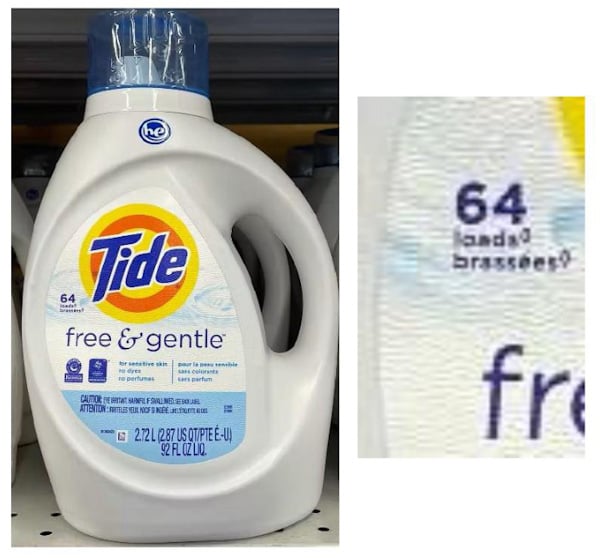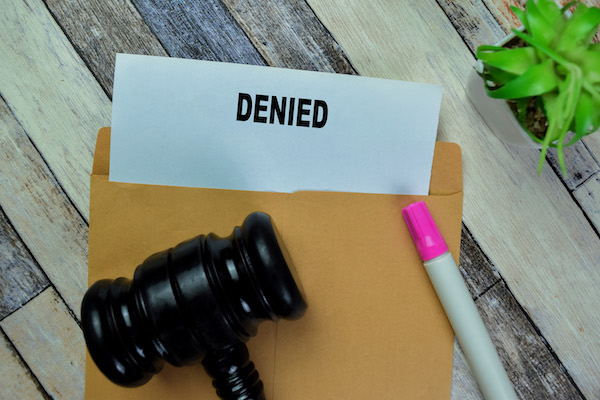The ITC in 2023: A Look at Five of the Most Surprising Section 337 Developments | Wolf, Greenfield & Sacks, P.C.
2023 was an exciting year for Section 337 litigation at the ITC, particularly in the final quarter of the year. As we ring in the new year, Wolf Greenfield Shareholder Libbie DiMarco examines five of the most noteworthy ITC developments from 2023.
1. The ITC Banned Apple Watch Importation and Sales (Inv. No. 337-TA-1276): In the rapidly evolving and newsworthy dispute between Masimo Corporation and Apple, Inc. (Certain Light-Based Physiological Measurement Devices and Components Thereof, Inv. No. 337-TA-1276), the Commission issued, and the Biden administration upheld, remedial orders prohibiting the importation and sale in the US of Apple’s infringing Apple Watch products.
This ITC investigation (1276) is a hotly contested dispute filed by Masimo against the global market’s dominant smart watch manufacturer, Apple. Relying on its market dominance, Apple urged the Commission to deny any remedial orders on the basis that Masimo’s requested relief (an exclusion order and a cease and desist order) ran afoul of the public interest factors enumerated in 19 U.S.C. 1337(d)(1) and (f)(1).
But on October 26, 2023, after finding a violation of Section 337, the Commission rejected Apple’s public interest arguments and issued the remedial orders that would prohibit the importation and sale in the US of infringing Apple Watch products. That ruling kicked off the 60-day period known as the presidential review period (PRP), during which importation may continue and the President, via the appointed US Trade Representative, has the right to review and potentially veto the remedial orders. The 1276 investigation’s PRP expired on (of all days) December 25, 2023. The Biden administration declined to veto the remedial orders, which is akin to approving the orders. The 1276 remedial orders became enforceable beginning on December 26, 2023.
2. The Federal Circuit Halted the ITC’s Apple Watch Importation Ban (Inv. No. 337-TA-1276): Arising out of the same dispute between Masimo and Apple, but worthy of its own spotlight, on December 27, 2023, the Federal Circuit issued an interim order temporarily suspending the ITC’s remedial orders that survived the PRP in the 1276 Investigation. The Federal Circuit’s order came right on the heels of the expiration of the PRP and just one week after the ITC denied Apple’s request for the same relief.
In the underlying 1276 investigation, Apple had filed a motion to stay the remedial orders on October 30, 2023—just four days after the ITC issued its opinion finding a violation of Section 337 and accompanying remedial orders. On December 20, 2023, the ITC denied Apple’s motion to stay.
On December 26, 2023, Apple filed two emergency motions with the Federal Circuit: one seeking a stay pending the outcome of the Federal Circuit appeal, and the other seeking “an immediate, interim stay” pending the court’s ruling on the motion to stay pending appeal. The next day, in a highly unusual move, the Federal Circuit granted the interim stay of the remedial orders effective until the Federal Circuit issues a ruling on the motion to stay pending the outcome of the Federal Circuit Appeal.
3. The Commission’s Partial Denial of Institution (Inv. No. 337-TA-1381): In another unusual move in the final quarter of 2023, the ITC partially denied institution of certain causes of action alleged in the complaint in Certain Disposable Vaporizer Devices and Components and Packaging Thereof (Investigation No. 1381).
The complaint in the 1381 investigation was filed by the R.J. Reynolds Tobacco Company and R.J. Reynolds Vapor Company against more than two dozen respondents that sell tobacco vaping products. The complaint alleged solely non-patent claims for unfair competition, including claims based on false advertising and false designation of origin under the Lanham Act, violations of the Prevent All Cigarette Tracking Act (PACT), and violations of US Customs laws and regulations. Though the ITC instituted the investigation, it rejected two types of causes of action alleged in the complaint.
First, ITC rejected causes of action based on alleged false statements that the accused products were authorized for sale under the Food, Drug, and Cosmetics Act (FDCA). The US Food and Drug Administration submitted a statement urging the Commission to deny institution of these claims—deemed the Authorization Claims—because allowing the Authorization Claims “would usurp” the FDA’s enforcement authority under the FDCA. The Commission agreed and declined to institute the Authorization Claims.
Second, the ITC rejected causes of action based on alleged violations of Customs laws and regulation. Like the FDA, the US Customs and Border Protection took the position that a private party lacked the right to pursue a cause of action based on alleged violations of Customs laws and regulations. The Commission agreed and declined to institute the claims based on violations of Customs laws and regulations.
Commissioners Kearns and Schmidtlein both issued separate views.
4. The Commission Sua Sponte Implemented the 100-Day Program (Inv. No. 337-TA-1352): In Certain Selective Thyroid Hormone Receptor-Beta Agonists, Processes for Manufacturing or Relating to Same, and Products Relating to Same (Inv. No. 337-TA-1352), the Commission sua sponte implemented the 100 day early disposition program, ordering the presiding ALJ to hold an early evidentiary hearing and issue an early initial determination on the issue of injury to the domestic injury. This ruling was unusual not only because it was done sua sponte but also because the ITC rarely invokes the 100 day program.
5. The Commission Appoints Judge Doris Hines as the Newest ALJ: Last, although not surprising given her wealth of experience as an ITC practitioner, it is note-worthy that, effective February 23, 2023, the ITC appointed now-ALJ Doris Hines. And with the appointment of ALJ Hines, the ITC is now back to a full roster of six ALJs as we head into 2024.






